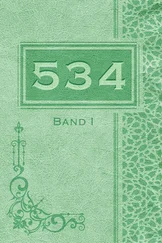36
Did he get in touch again?
Who?
Kumamoto.
No, I shook my head: I don’t know what happened to him, and to be honest I really don’t want to find out.
Why not?
He has written his poem. Do you see? Now I am writing mine.
And if he were still alive…
… yet I’ve spent two years in my room. The last two years of my youth — given away! Given to him, who must be, I can’t imagine it any other way, dead to the bottom of his soul.
May I read it? Your poem?
It’s not finished yet.
But there it is.
Where?
On the back of your hand.
So many scars. I hid them in a flash.
37
Root vegetables, soba noodles, two korokke croquettes.
The few crumbs that were left he scattered in front of the pigeons, which had gathered around us flapping their wings. He stamped his feet. They whirred away. Came back with ruffled neck feathers. Forgetting that he had just shooed them away. The poor things, he murmured. It must be awful. No memory. But perhaps not as awful as you imagine. I mean. If you were to forget everything. Wouldn’t you forgive everything as well? Forgive yourself and others? Would you not be free of regret and guilt? An electrical crackling, he flicked an invisible fleck from his trousers with his sleeve. No, not so, that would be too easy. To forgive, to be really free, you have to remember, day after day.
Do you want to tell me more?
Yes, I’d like to forgive. The sentence came out, just like that.
I am not a typical hikikomori, I continued. Not like one of those in the books and articles that are put by my door from time to time. I don’t read manga comics, I don’t spend the day in front of the television and the night in front of the computer. I don’t build model airplanes. Video games make me feel sick. Nothing can distract me from the attempt to protect me from myself. From my name, my inheritance. I am an only son. From my body, whose needs have not ceased — to maintain it. From my hunger, from my thirst. In the two years since I withdrew, I was overcome by my body three times a day. Then I crept to the door, opened it a crack, picked up the tray my mother had put there for me. If no one was at home I crept out to the bathroom. I washed myself. Strange, this need to wash myself. I brushed my teeth and combed my hair. It had grown long. A glance in the mirror: It is still me. I suppressed the cry sitting in my throat. I wanted to protect myself from it too. From my voice, from my language. The language, in which I now maintain that I don’t know whether a typical hikikomori really exists. Just as there are all sorts of rooms, there are all sorts of hikikomoris, who, for all sorts of reasons, have retreated into themselves in all sorts of ways and means. While one, whom I’ve read about, spends his vanishing youth practicing the same tune over and over again on a three-string guitar, the next, I’ve read about him too, assembles his shell collection. At night, when it is dark, he runs down to the sea, his hood over his head, and returns home only as the light dawns.
38
I’m lucky to have been left in peace up till now. For there are some who have been enticed out. They’re promised reintegration. Recovery too. Work. Success. With this faint promise on their lips they are led back step by step into society, that great commonality. They are accustomed to pleasing it. They are harmonized. But I am lucky. They haven’t reckoned with me. They haven’t sent a social worker to sit by my door and go on at me for hours and hours. The books and newspaper articles, Father’s aftershave, Mother’s fingerprint on a little ball of rice, this slight life is just enough, just tolerable. It is granted to me. That is my good fortune. To be part of a family, that is granted to me, to enclose me. Out of shame, mind you. Nobody should find out that I am a hikikomori. The neighbors have been told I’m on an exchange program in America, and now that I am going out again, they’ve been told that I came back, need time to get used to home. It’s my luck to be part of a family that’s ashamed of me.
And perhaps it is this luck which characterizes a hikikomori most of all. The happiness of being freed for an indeterminate time from events and effects, from the interplay of causes and effects. Without an earthly aim before your eyes and without the need to reach one, to remain in a space where nothing happens. A ball lying still, off to the side and not colliding with any others. As you cut yourself off, you fall out of the dense web of contacts and relationships, and you are relieved at that, not to have to do that. This relief: You don’t have to make any further contribution. At last you admit you’re completely indifferent to the world.
39
It is not easy to have a hikikomori in the family. Especially not at the beginning. You know: There is the threshold, beyond it his room, where he is playing dead. He’s still living, you hear him sometimes, much too seldom, walking up and down. You put the food by the door and see how it disappears. You wait. Certainly he must go to the bathroom at some point, to the toilet. You wait in vain. The first time I only went out when I was sure that nobody would disturb my existence. My existence consisted of my absence. I was the floor cushion nobody sat on, the empty place at the table, the nibbled plum on the plate I put back out by the door. In that I was absent, I had violated the rule that says, you must be there, and if you are there, do something, achieve something.
Yet it is not particularly difficult to have a hikikomori in the family. The initial despair dissipates. You’re no longer in despair at his absence, rather you are desperately trying to conceal it. A shame, that. Our only son. People have begun to talk about us. Furtive glances at the Fujimotos. They whisper, I’m buying for three when I should really only buy for two. At least he has closed the curtains. Just imagine if anyone were to see him. You know what it was like with the Miyajimas. In the end nobody had a good word to say about them any more.
Father and Mother were in agreement: Name and reputation must be preserved at all costs. They argued a lot over who was to blame for my retreat and who was more guilty. They argued quietly, just quietly enough that the neighbors could not hear them. You spoiled him, was the implication. Or: You were never there for him. But regarding name and reputation, they were in agreement, and their agreement was to my advantage, for it allowed me to retreat further and further.
Only once did they try to get me out. At the highpoint of their despair they broke down the door with a crowbar. Father stormed in, he was beside himself. And if I have to beat you out! He raised his hand. Kumamoto’s. For seconds in the air. I recoiled. It whistled down. Struck the void. Sank ineffectually towards the floor. I said: I can no longer. Said it rather to myself. From then on I was left quite alone.
40
Were you listening?
Hmm.
Then he was silent. His silence did not validate what I said, or how. It was hmm, nothing more, and with the hmm the sun moved right across the sky. When we began to talk again, we spent time making small talk. The weekend. The weather. If it stays nice out we’ll drive to the sea tomorrow. Kyōko loves that. To drive somewhere.
Another hmm.
Then he fell asleep.
It occurred to me that I’d left out a lot. For example, I’d left out that Kumamoto sometimes called me his twin. More accurately: his soul mate. I’d left out that I missed him. I’d left out that Mother often cried about me. And that Father never forgot to push my pocket money under the door. I left out that it was really these omissions which lent my story its shape. Kumamoto had been right: You could write requiems, millions, about one and the same death, and yet each one said something different, according to what it omitted.
Читать дальше












